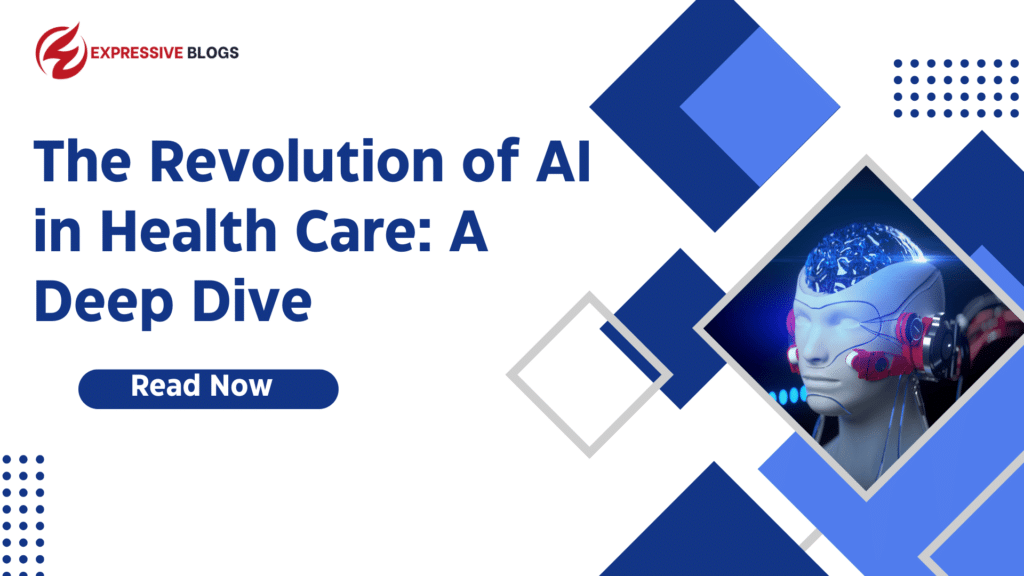Artificial intelligence (AI) has transformed several industries in recent years, and the healthcare sector is no different. How we approach patient care, diagnosis, and treatment is changing due to the introduction of AI into medical procedures. In this blog, we will discuss how ai in health care is transforming, along with the challenges and future prospects of this technological marvel.
Enhancing Diagnostics
One of AI’s great contributions to healthcare is its ability to deal with huge amounts of data fast and accurately. Machine learning algorithms can evaluate medical pictures including X-rays, MRIS, and CT scans with extreme accuracy. This not only accelerates the diagnosis procedure but also lowers the possibility of human mistakes. AI systems can also detect the early stages of illness such as cancer or neurological problems, allowing for prompt intervention and better patient outcomes.
Personalized Treatment plans
Ai is additionally great at personalized medicine. AI may offer individualized treatment strategies for patients based on their genetic information, lifestyle, and medical history. This method guarantees that patients receive the most effective medicines while reducing side effects and maximizing recovery. Ai-powered systems can also forecast how patients react to certain therapies, allowing clinicians to make better-educated decisions.
Streamlining Administrative task
AI is also transforming healthcare administration and enhancing clinical results. Tasks like billing, paperwork, and appointment scheduling may be automated using natural language processing (NLP) techniques. By simplifying processes and decreasing wait times, this improves patient satisfaction while simultaneously lessening the administrative load on healthcare workers.
also read:Top ai courses in pakistan: Level Up Your Skills
Remote monitoring and Telemedicine
Ai is a key factor in the rapid adoption of telemedicine brought on by the COVID-19 epidemic. Continuous care may be provided without the need for in-person visits thanks to AI-powered remote monitoring technologies that can follow patient’s vital signs and health parameters in real-time.
Challenges and ethical considerations
ai in health care has many advantages, but with many advantages, it also has some drawbacks as well as dilemmas to resolve. Data privacy and security are paramount, as healthcare data is highly sensitive. Preventing inequalities in treatment also requires that AI systems be impartial and transparent.
The future of ai in health care
AI in healthcare has a bright future ahead of it. As technology develops, we may anticipate even more advanced AI applications that improve patient care. We are only at the beginning of innovations like enhanced drug research, predictive analytics for disease outbreaks, and robotic surgery driven by AI. AI has the potential to completely transform healthcare worldwide with more study and cooperation between IT and Medical experts.
Conclusion
In conclusion, we have to say that, the integration of artificial intelligence (AI) is a transformative era for healthcare. From accelerating drug discovery and personalizing treatment plans to improving diagnostic accuracy and streamlining administrative tasks, ai technologies are revolutionizing patient care, while there are many challenges such as data privacy, ethical considerations, and the need for robust regulatory frameworks remain, the potential benefits of Ai in healthcare are immense.



